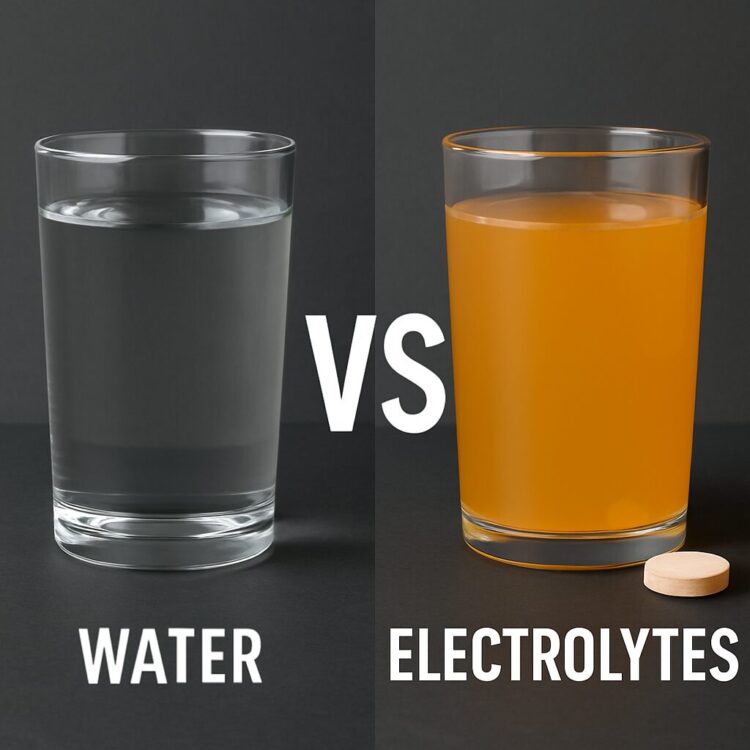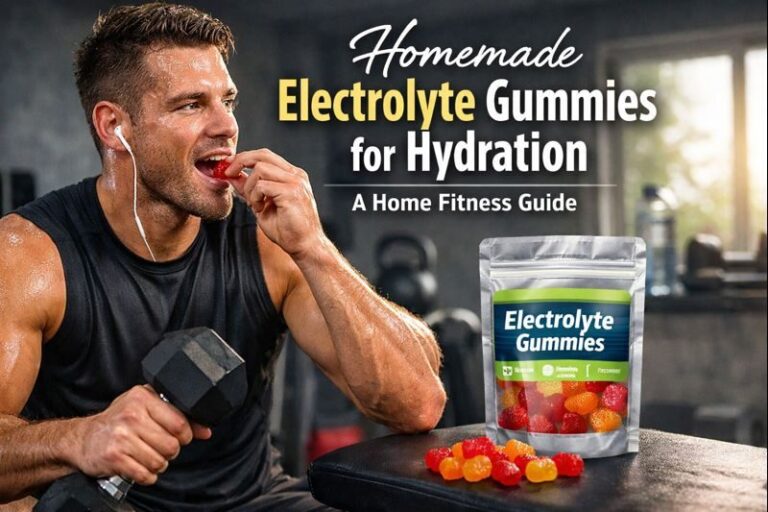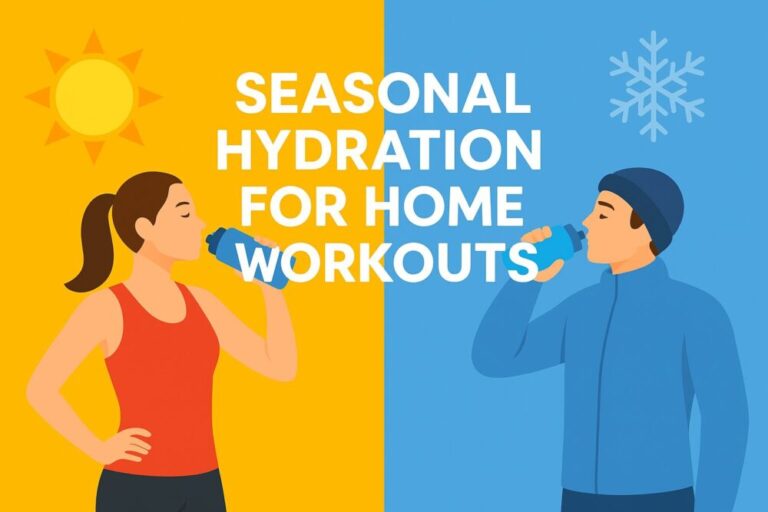If you’re a real fitness enthusiast, you probably asked your self : Electrolytes vs Water–should I add electrolytes? It’s a common question, especially if you’re doing high-intensity interval training (HIIT) at home and pushing your limits.
Staying hydrated should not be compromised in terms of performance and recovery, but the type of hydration chosen matters significantly: should it just be water? Or are sports drinks and electrolyte powders only meant for elite athletes?
In this post, we’ll go over when water alone suffices, when electrolytes should come into play, how best to choose an option depending on workout intensity, sweat rate and environment conditions as well as how best calculate hydration using our Water Intake Calculator created specifically for home fitness enthusiasts like you!.
Let’s break down the differences to help you select the appropriate option based on your workout, environment and body needs.
Electrolytes vs Water: When Is Plain Water Enough?
The answer to Electrolytes vs water for a short and moderate HIIT sessions under 30 minutes, plain water may suffice as an effective hydration source and cooling solution. As long as your environment doesn’t contain excessive heat and humidity, water can serve to both keep you hydrated while maintaining basic fluid balance.
Benefits of opting for water include:
✅ Zero calories
✅ Easily absorbed by the body
✅ Cost-effective and accessible
✅ No additives or artificial ingredients
Water alone should usually suffice for beginners engaging in low-impact routines like modified burpees, step jacks or light circuit training – such as modified burpees, step jacks or light circuit training.
Individual needs vary greatly; to gauge how much water your body requires based on factors like your weight, activity level and environment, use the Water Intake Calculator tool – an online calculator created specifically for home fitness enthusiasts.
When Do You Need Electrolytes?
As your HIIT workouts become longer and sweatier, electrolyte loss becomes an increasing threat. Electrolytes include sodium, potassium, calcium and magnesium – essential minerals which assist your body with keeping fluid within cells as well as contracting muscles and controlling nerve signals.
Under intense training conditions, your body loses both water and electrolytes through sweat. Replacing only water with its equivalent could dilute the remaining electrolyte concentration in your system, resulting in symptoms such as:
- Muscle cramps
- Fatigue
- Dizziness
- Nausea
- Poor post-workout recovery
This is especially true during:
- Sweating heavily due to body type or clothing
- Sessions longer than 30–45 minutes
- HIIT workouts in hot or humid rooms
- Back-to-back workout days
What the Science Says ?
According to a comprehensive review published in Nutrients, electrolyte replenishment is key for athletes performing high-intensity workouts, particularly when sessions last beyond 60 minutes or occur in warm conditions. The review notes that sodium loss can reach up to 3,500 mg/hour in some individuals, depending on intensity and environment (Nutrients, 2020).
Which to Choose? A Scenario Breakdown
Let’s look at a few common home HIIT scenarios to decide what works best between Electrolytes vs. Water :
| Workout Type | Duration | Sweat Level | Best Option |
|---|---|---|---|
| Bodyweight HIIT | 20 mins | Low–Moderate | Water |
| Cardio/Strength HIIT | 30–40 mins | Moderate–High | Water (consider electrolytes after) |
| Hot Room / High-Intensity HIIT | 45+ mins | High | Electrolytes recommended |
| Double Sessions / Daily Workouts | Varies | High (cumulative) | Electrolytes + consistent hydration |
Be mindful that when electrolytes are necessary, this doesn’t have to mean reaching for sugar-heavy sports drinks. There are alternative solutions such as electrolyte tablets or zero-calorie powders that provide electrolytes at lower sugar levels, as well as natural sources such as coconut water or pink Himalayan salt with lemon water as alternatives.
Knowledge is power, so estimating how much water you require before and after workouts is paramount. Our Water Intake Calculator makes this easy with personalized hydration goals tailored to your activity level and body type.
Tips for Optimal Hydration During Home HIIT
Here are a few tips that will help stay optimally hydrated :
- 💧 Drink 16–20 oz of water 30–60 minutes before your workout
- 🚰 Sip water between sets if your session is over 30 minutes
- 🥤 Consider an electrolyte drink after especially sweaty sessions
- 🛏️ Rehydrate post-workout with water + sodium-rich foods (e.g. broth, leafy greens, sea salt)
- 🔁 Stay consistent—even on rest days
Want to dive deeper into how hydration supports recovery, muscle growth, and reduced soreness? Check out our article on Hydration and Muscle Recovery: What Science Tells Us.
Conclusion
So what should you reach for when midway through a home HIIT workout, and you start working up a sweat?
If your workouts are under 30 minutes and low to moderate intensity, water might be sufficient. Just ensure that you begin each session feeling properly hydrated.
Electrolytes can help enhance performance and recovery during tough training, sweaty workouts or in hot rooms. Electrolytes help the body retain fluid by replacing what has been lost through sweat – making them especially beneficial in home fitness sessions that last more than an hour at a time
For a complete breakdown of everything you need to know about hydration, don’t miss our Ultimate Guide to Hydration for Home Fitness Enthusiasts, it’s your one-stop resource to mastering water intake, recovery, and long-term performance at home.
FAQ
Is water enough for short HIIT workouts?
Yes,if your session is under 30 minutes, and you’re not sweating heavily, plain water is usually sufficient to stay hydrated and maintain performance.
When should I drink electrolytes during a workout?
Electrolytes are most helpful during workouts lasting over 40 minutes, in hot conditions, or when you’re sweating heavily. They support fluid balance and prevent muscle cramps.
What are natural sources of electrolytes?
Coconut water, bananas, citrus fruits, sea salt, and leafy greens are excellent natural sources of essential electrolytes like potassium, sodium, and magnesium.
How do I know how much water I need for my workouts?
Use our free Water Intake Calculator to get a personalized hydration recommendation based on your weight, activity level, and environment.







